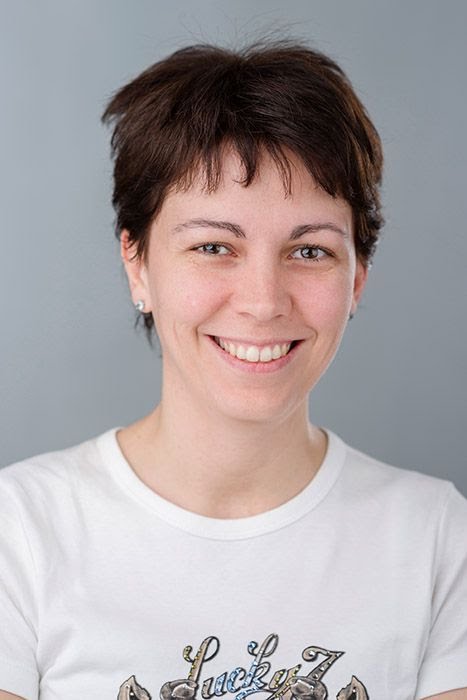Studying at the University of Verona
Here you can find information on the organisational aspects of the Programme, lecture timetables, learning activities and useful contact details for your time at the University, from enrolment to graduation.
Academic calendar
The academic calendar shows the deadlines and scheduled events that are relevant to students, teaching and technical-administrative staff of the University. Public holidays and University closures are also indicated. The academic year normally begins on 1 October each year and ends on 30 September of the following year.
Course calendar
The Academic Calendar sets out the degree programme lecture and exam timetables, as well as the relevant university closure dates..
| Period | From | To |
|---|---|---|
| primo semestre | Sep 28, 2015 | Jan 8, 2016 |
| Secondo Semestre Magistrali | Feb 22, 2016 | Jun 1, 2016 |
| Session | From | To |
|---|---|---|
| appelli sessione invernale | Jan 11, 2016 | Feb 13, 2016 |
| appelli sessione estiva | Jun 6, 2016 | Jul 9, 2016 |
| Appelli sessione autunnale | Aug 29, 2016 | Sep 16, 2016 |
| Session | From | To |
|---|---|---|
| sessione autunnale | Dec 11, 2015 | Dec 18, 2015 |
| sessione invernale | Apr 6, 2016 | Apr 8, 2016 |
| sessione estiva | Sep 13, 2016 | Sep 14, 2016 |
| Period | From | To |
|---|---|---|
| vacanze natalizie | Dec 23, 2015 | Jan 5, 2016 |
| vacanze pasquali | Mar 25, 2016 | Mar 29, 2016 |
| vacanze estive | Aug 8, 2016 | Aug 27, 2016 |
Exam calendar
Exam dates and rounds are managed by the relevant Economics Teaching and Student Services Unit.
To view all the exam sessions available, please use the Exam dashboard on ESSE3.
If you forgot your login details or have problems logging in, please contact the relevant IT HelpDesk, or check the login details recovery web page.
Academic staff
 nicola.sartor@univr.it
nicola.sartor@univr.it
Study Plan
The Study Plan includes all modules, teaching and learning activities that each student will need to undertake during their time at the University.
Please select your Study Plan based on your enrollment year.
1° Year
| Modules | Credits | TAF | SSD |
|---|
2° Year activated in the A.Y. 2016/2017
| Modules | Credits | TAF | SSD |
|---|
Two courses to be chosen among the followingTwo courses to be chosen among the following| Modules | Credits | TAF | SSD |
|---|
| Modules | Credits | TAF | SSD |
|---|
Two courses to be chosen among the followingTwo courses to be chosen among the following| Modules | Credits | TAF | SSD |
|---|
Legend | Type of training activity (TTA)
TAF (Type of Educational Activity) All courses and activities are classified into different types of educational activities, indicated by a letter.
Microeconomics (advanced) (2015/2016)
Teaching code
4S02460
Teacher
Coordinator
Credits
9
Language
English
Scientific Disciplinary Sector (SSD)
SECS-P/01 - ECONOMICS
Period
primo semestre dal Sep 28, 2015 al Jan 8, 2016.
Learning outcomes
The course covers topics of consumer theory, production theory, industrial organization, and experimental/behavioral economics. It is divided into three parts.
The first part will analyze economic models of individual decision-making, consumer behavior, and firm behavior.
The second part intends to provide students with rigorous economic tools for the analysis of market structure and market relations.
The third part will introduce concepts of experimental and behavioral economics, paying particular attention to alternative theories of individual choice behavior and of industrial organization.
Program
Individual decision making:
- preferences,
- choices,
- utility function,
- demand theory,
- production.
Markets structures and Organization:
- perfect competition,
- advanced monopoly theory,
- markets for homogeneous/differentiated products,
- collusion.
Experimental and behavioral economics:
- methods of experimental economics,
- external validity issue,
- social preferences (equity, fairness, trust and reciprocity, altruism),
- applications to industrial organization.
Professor Paola Manzini (from the School of Economics and Finance, University of St Andrews) and Professor Marco Mariotti (from the School of Economics and Finance, Queen Mary University of London) will be giving two three-hour lectures on choice theory.
Recommended reading:
• GEOFFREY A. JEHLE and PHILIP J. RENY: “Advanced Microeconomic Theory”, Pearson Education(3rd Edition). The chapters to study are: 1, 2, 3.
• OZ SHY: "Industrial Organization - Theory and Applications", MIT Press 1995. The chapters to study are: 2, 3, 4, 5.
• Details on the papers dealing with experimental/behavioral economics will be given during the course.
Further reading
• JEFFREY CHURCH AND ROGER WARE: "Industrial Organization: A Strategic Approach", McGraw-Hill 2000 (downloadable from elearning).
Examination Methods
Written exam (compulsory) & presentation of an article (optional).
Type D and Type F activities
Modules not yet included
Career prospects
Module/Programme news
News for students
There you will find information, resources and services useful during your time at the University (Student’s exam record, your study plan on ESSE3, Distance Learning courses, university email account, office forms, administrative procedures, etc.). You can log into MyUnivr with your GIA login details: only in this way will you be able to receive notification of all the notices from your teachers and your secretariat via email and soon also via the Univr app.
Linguistic training CLA
Gestione carriere
Student login and resources
Graduation
List of theses and work experience proposals
| theses proposals | Research area |
|---|---|
| La (cattiva) gestione dei fondi comunitari in Italia | ECONOMICS - ECONOMICS |
| Analisi dell'Impatto della Regolamentazione: potenziale e applicazioni concrete | Various topics |
| Costs and benefits of the new Turin-Lyon railway line | Various topics |
| Costs and benefits of new systems for speed control on italian motorways | Various topics |
| Contingent valuation for the quality of hospital characteristics | Various topics |
| Evaluating occupational impacts of large investment projects | Various topics |
Internships
Admission policy
ADMISSION POLICY
The admission procedure for international students is explained in details at:
www.magecverona.it/admission-benefits/
For further information please contact magec@dse.univr.it
Additional information
Additional information
For further information visit the program website, http://magec.dse.univr.it, or send an email at magec@dse.univr.it.

 045 802 8278
045 802 8278
















